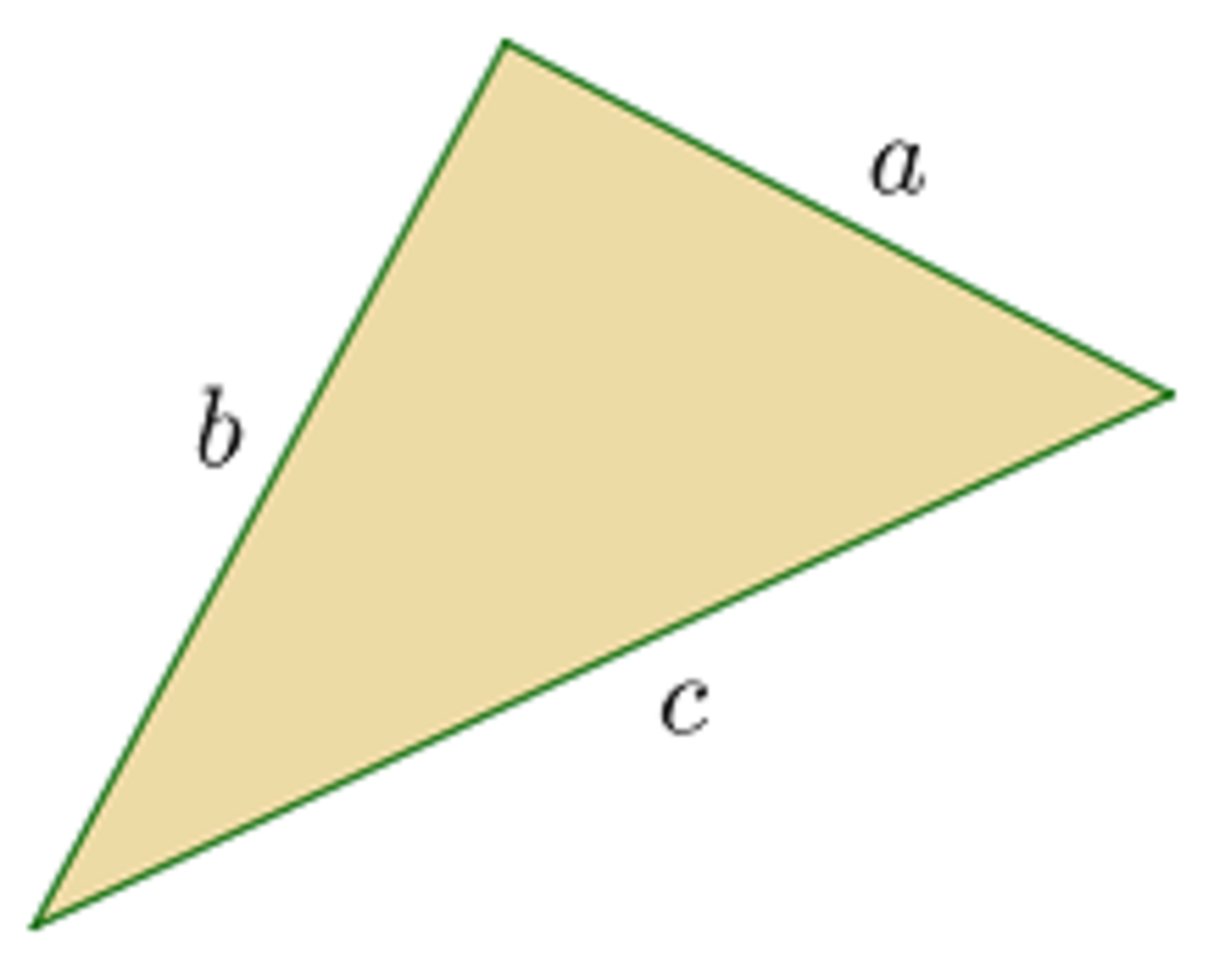A right relation of triangular numbers

The perimeter of a triangle is 8 4 and its sides form an arithmetic progression (AP) with integral terms a , b and c .
By setting T n = 1 + 2 + 3 + . . . + n , the following relation holds true:
T 2 a − 2 T a + 8 T 2 b − 1 + 2 b − 8 T 2 c − 1 = 1
Find the common difference of the AP.
The answer is 7.
This section requires Javascript.
You are seeing this because something didn't load right. We suggest you, (a) try
refreshing the page, (b) enabling javascript if it is disabled on your browser and,
finally, (c)
loading the
non-javascript version of this page
. We're sorry about the hassle.
1 solution
Finding triplets is really difficult for large numbers. I took the Arithmetic Progression a , b , c as x − y , x , x + y where y is the common difference. So x − y + x + x + y = 8 4 which means x = 2 8 . After substituting these values in the equation a 2 + b 2 = c 2 y can be found.
It is well known that T n = 1 + 2 + . . . + n = 2 n ( n + 1 ) . Using this formula, we get:
T 2 a − 2 T a = 2 2 a ( 2 a + 1 ) − 2 2 a ( a + 1 ) = 2 a 2 + a − a 2 − a = a 2
8 T 2 b − 1 + 2 b = 8 2 ( 2 b − 1 ) 2 b + 2 b = 4 ( 4 b 2 − 2 b ) + 2 b = b 2
8 T 2 c − 1 = 8 2 2 c − 1 ( 2 c − 1 + 1 ) = 4 2 c − 1 2 c + 1 = c 2 − 1
Hence, the given relation yields
a 2 + b 2 − ( c 2 − 1 ) = 1 , that is a 2 + b 2 = c 2 . This means that we have a right angled triangle and ( a , b , c ) is a Pythagorean triple (Pt).
Now, there are only two Pt which add up to 8 4 : ( 1 2 , 3 5 , 3 7 ) and ( 2 1 , 2 8 , 3 5 ) .
Since a , b , c are in AP, we get a = 2 1 , b = 2 8 , c = 3 5 , thus, the common difference is 7 □ .